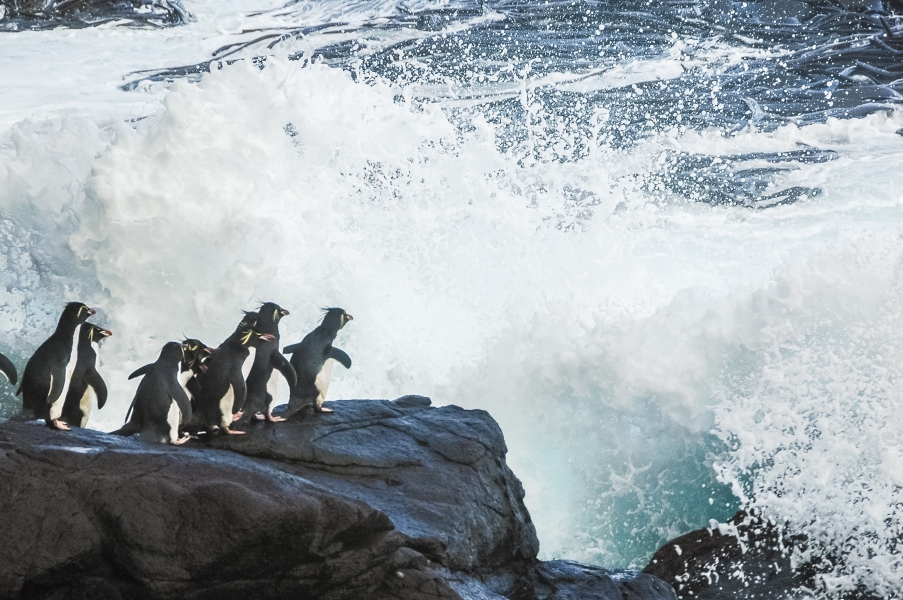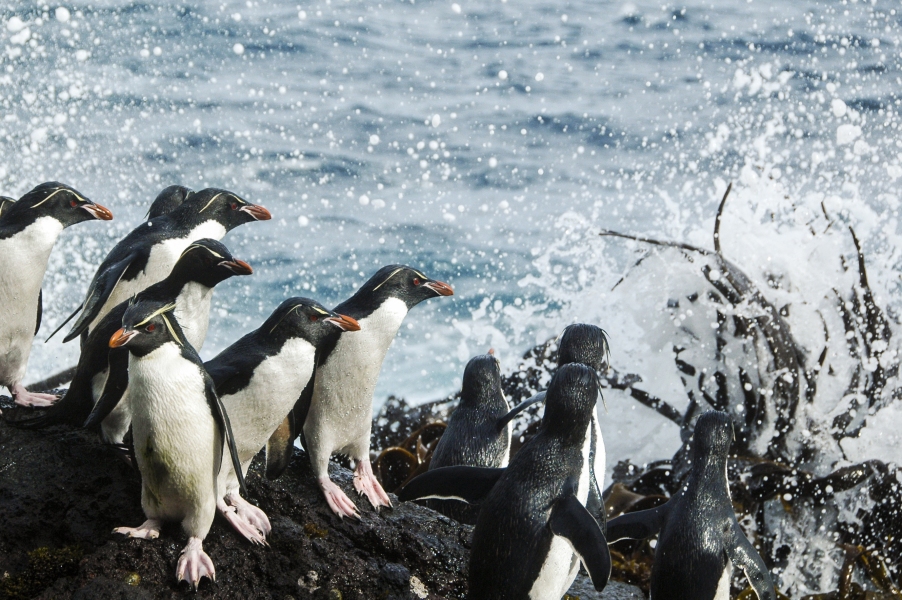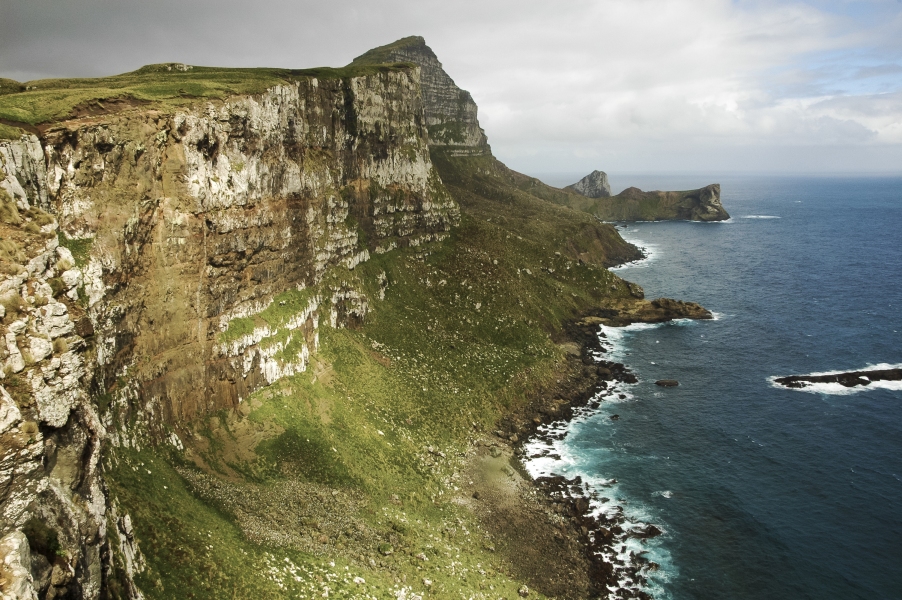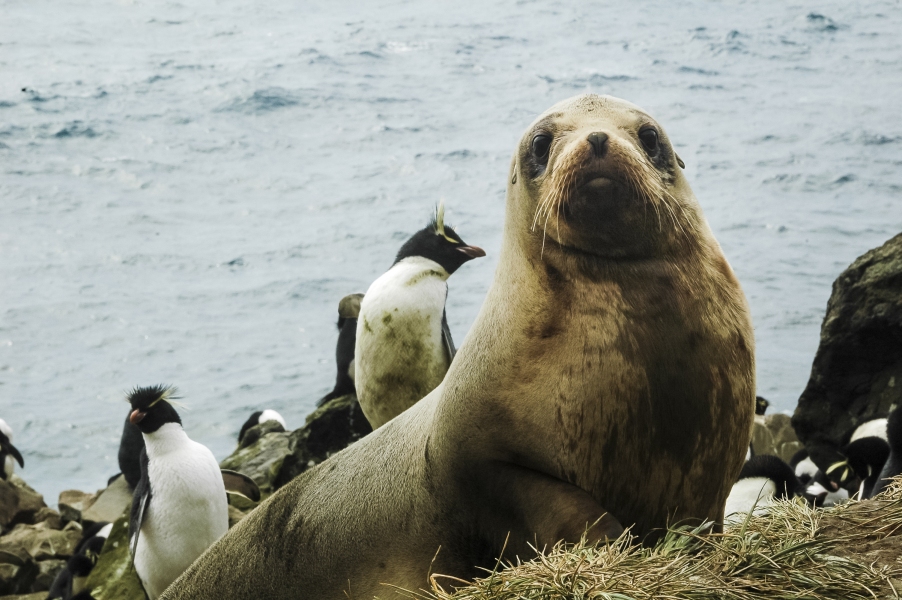The plight of the penguins of Penguin Bay has attracted the interest of scientists who are studying why there are fewer and fewer of them every year.
Thirty years ago Penguin Bay, Campbell Island, was home to about 7500 breeding pairs of rockhopper penguins, now listed as an endangered species. The latest count, carried out by PhD student Kyle Morrison and NIWA scientists, estimates the population at just 3000 breeding pairs – a decline of 60 per cent.
“Island-wide the population has been relatively stable in the last 15 to 20 years but at Penguin Bay they have continued to decline.”
In a paper published earlier this year, Mr Morrison and fellow NIWA scientists Drs David Thompson and Paul Sagar, together with Dr Phil Battley of Massey University, revealed the findings of the latest population census of rockhopper penguins.
They estimated there were just over 33,000 breeding pairs on the island – down 21% from 1984. While substantial, the scientists said the decline occurred at a much slower rate than between 1942 and 1984.
Campbell Island was once the world’s largest breeding colony of rockhopper penguins but a dramatic decline between 1942 and 1984 reduced the population by about 94%.
Rockhoppers are among the world’s smallest penguin species at 45-55cm long, and weighing in at 2.2-4.3kg.
The leading hypothesis to explain the dramatic rockhopper population decline on Campbell Island has been a reduction in food availability linked to climate change.
At Penguin Bay, Mr Morrison says the decline is also being driven by predation by brown skuas, giant petrels and New Zealand sea lions. Between them they eat everything from eggs to chicks to adults. The video footage below of a sea lion catching and eating a rockhopper taken at Penguin Bay shows just how vulnerable they are.
Mr Morrison says the Penguin Bay colony is particularly vulnerable because its location and topography is better suited to the growing population of sea lions than other colonies.
“As the penguins decline there are also more skuas per penguin nest so they are under more pressure. And as the colonies contract and fragment greater numbers of nests become more exposed and more susceptible to the skuas. ”
Unfortunately for the penguins, Penguin Bay is close to the sea lions’ favourite beach, it’s more sheltered and also acts as an access point to the interior of the island.
Mr Morrison’s paper is likely to be published early in the New Year.




